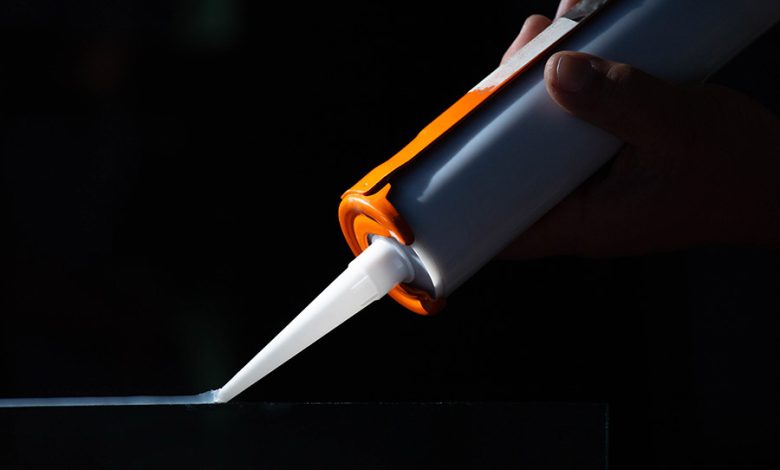Application of bonding and sealing materials

Last Updated on February 16, 2024 by Ali Hamza
To fundamentally improve the petrochemical production level and ensure the service life of petrochemical machinery and equipment, it is necessary to analyze various risk problems existing in the practical application of petrochemical machinery and equipment, apply appropriate bonding and sealing materials, repair the corroded parts of the equipment, prevent the dislocation of various parts in the equipment, and fundamentally ensure the petrochemical production quality and production efficiency.
1. Application significance of bonding and sealing materials in petrochemical machinery
In the petrochemical production process, the application of appropriate bonding and sealing materials can fundamentally ensure the operation performance of mechanical equipment and enhance the economic and safety benefits of the petrochemical production process. Therefore, it needs to be highly concerned by the petrochemical management department. Select appropriate bonding and sealing materials according to the operation requirements and characteristics of mechanical equipment. Specifically, the application significance of bonding and sealing materials in petrochemical machinery is mainly reflected in the following aspects:
- The use of appropriate bonding and sealing materials can fundamentally ensure the production quality of petrochemical machinery products and reduce quality problems and safety accidents in the production process. At the same time, the petrochemical machinery products using bonding materials and sealing materials have light overall quality, uniform bonding parts, and neat and flat appearance, which can better meet the high requirements of the state and relevant departments for the production quality of the petrochemical industry
- Enhance petrochemical production efficiency. By selecting appropriate bonding and sealing materials, we can better save materials during the production and maintenance of petrochemical machinery and equipment, and effectively improve the actual product quality and production efficiency. Specifically, the use of appropriate adhesives can save metal and metal fastener materials, control the workload of human resources, and help enterprises maximize economic benefits
- Meet the production needs of special products. The use of sealing materials can effectively avoid the problems of oil leakage, air leakage, and water leakage during the production of petrochemical machinery. While not stopping for maintenance, the leakage of the high-pressure pipeline shall be blocked to ensure the smooth and orderly development of production
- Improve resource utilization. In the process of petrochemical production, the damaged Petrochemical Mechanical parts need to be repaired in time before they can be put into use. Appropriate bonding materials and sealing materials are applied to impregnate and repair the damaged mechanical parts, so that the sand holes and shaft door fracture of the parts can be solved in time, fundamentally improving the utilization rate of the damaged equipment and protecting the core interests of the petrochemical production industry. And Suconvey Rubber can supply six types of silicone rubber sealing products.
2. Application requirements for mechanical bonding and sealing materials in petrochemical industry
In the actual production process of the petrochemical industry, bonding and sealing materials are mainly used in the process of mechanical maintenance, sealing, and plugging. Due to a large amount of machinery and equipment involved in the petrochemical industry and its complex functions, when selecting the bonding and sealing material, it is required that the material has the following characteristics:
- It is required that the bonding and sealing materials used in petrochemical machinery and equipment have significant shear strength and tensile strength, which can maintain the stability of machinery and equipment under strong impact and long-term operation;
- The bonding and sealing materials are required to have high environmental applicability characteristics to ensure that the bonding and sealing materials can remain intact under high temperatures and high corrosion. Moreover, the bonding and sealing materials also need to have strong insulation and isolation functions to effectively resist electrochemical corrosion during petrochemical production.
- When the internal temperature is different from that of the sealing material, the adhesive deformation will not occur when the internal temperature is small
- During the practical application of bonding and sealing materials, the curing time should be shortened to keep the curing temperature in a low range. By enhancing the bonding and sealing rate, the petrochemical production efficiency is improved, which is more suitable for the rescue and plugging links during petrochemical production.
3. Common bonding and sealing materials in petrochemical industry
3.1 common adhesives
In the process of machinery production and later maintenance in the petrochemical industry, common adhesives need to have the characteristics of good curing and can be suitable for bonding all kinds of metal or non-metallic mechanical parts. At the same time, the adhesives in the The petrochemical industry should also meet the requirements of bonding, process positioning, and repair of complex parts. At this stage, common adhesives are mainly divided into epoxy resin adhesives and polyvinyl alcohol adhesives.
3.2 Common structural adhesives
Most petrochemical machinery and equipment have stress structures, which requires that the structural adhesive should bear a large load force. Among structural adhesives, epoxy resin adhesives are more commonly used. With the development of bonding technology, a large number of acrylic and urethane adhesives are also widely used in the bonding process of petrochemical mechanical structures.
3.3 Common non structural adhesives
The bonding strength of unstructured Petrochemical Mechanical adhesive is not high and the stress is small. It can be used in the bonding process of soft materials with low elastic modulus. Common non structural adhesives mainly include rubber paste, organic silica gel and so on.
3.4 Common sealing materials
In the actual production process of the petrochemical industry, sealing materials need to effectively adhere to non-metallic mechanical equipment or metal mechanical equipment together, which can withstand high production temperature and pressure, and seal the gas, liquid, and dust inside the mechanical equipment . Common materials in petrochemical operation mainly include vulcanized sealing materials, anaerobic sealing materials, and organic potting materials.


